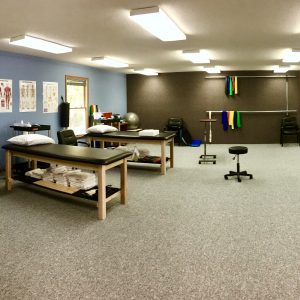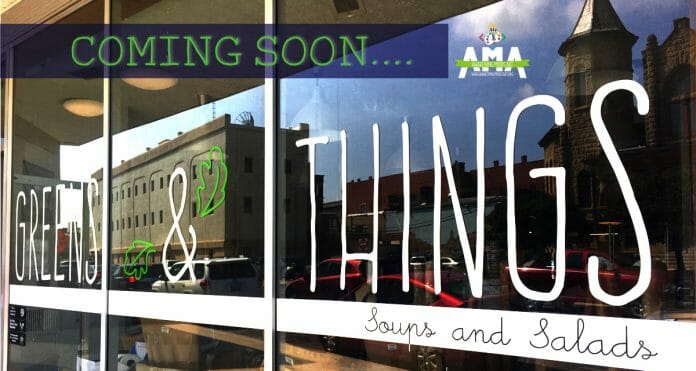Downtown Findlay will soon have an exciting new local restaurant – one that takes the word ‘local’ to a whole new level. Greens & Things, which will serve soups and salads, is coming along nicely at it’s 125 W. Sandusky home. We stopped by to learn more about their eco-friendly plans.

The restaurant’s objective is to have zero waste that is non-compostable. Packaging for all products will be biodegradable. At the end of the day, if there is food leftover that cannot be served the next day, it will be donated, or composted.
They are hoping to be open by the end of August or early September. Once the time comes, they will be hiring service staff, dishwashers, and staff to work at the greenhouses year-round. Keep an eye out on Social Findlay’s Facebook page, and we will let you know when they are taking applications.
Once complete, Greens & Things will offer seats for up to 35 customers inside, as well as take away options. Online ordering will also be available for pickup or delivery to nearby locations (downtown area).

Local Art
Greens & Things commissioned two large pieces of art from Awakening Minds Art. Megan, program director at AMA, told us more about the process. “He [Silas] gave us his concept of what he was wanting. When he said the restaurant was focused on being green and eco-friendly, I said, why don’t we do some sort of recycled art to go with the theme?”
Megan drew up the basic outlines for a pair of images. Thanks to a donation of bottle caps and crayons, sorted by color, students were able to organize and place the colors to fit the image. Volunteers helped glue them into place.
The image above represents the ‘Farm’ aspect of ‘farm-to-table’ – the concept of bringing food directly from local producers straight to consumers. The second image will show the produce at the table.
AMA offers custom commissioned art in exchange for a donation – a great way for the community to give back, and get something in return. All the work is done by students, with the help of instructors and volunteers. Megan explained that this is a sector of their fundraising efforts. The commissioned art helps keeps AMA programs affordable.





Facebook Comments